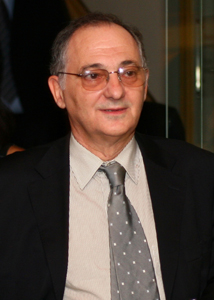Lisbon Centre
| Phase OneView Centre Details | Phase Two | Phase Three | |||
| Centre: | Lisbon, Portugal ( Western Europe ) | ||||
| Principal Investigator: | Dr José E Rosado Pinto | ||||
| Age Groups: | 13-14, 6-7 | Timeframe: | November 2001 to March 2002 | ||
| Sampling Frame: | Some schools of the Lisbon Metropolitan area (Lisbon city and neighbouring municipalities. The same area as in Phase One. | ||||
Personnel
Ms Manuela Correia
Dept. de Estudos e Planamento da Saúde
Ministério da Saúde
Av. Alvares Cabral, 25
Portugal
Roles:
- Phase Three collaborator for Lisbon
Dr José E Rosado Pinto

Immunoallergology Department,
Hospital da Luz,
Av Lusíadas n. º 100,
1500-650 Lisboa
Portugal
Roles:
- National Coordinator for Portugal
- Phase One Principal Investigator for Lisbon
- Phase Three Principal Investigator for Lisbon
Ms Rita Vasconcelos
Depto. De Matemática
Universidade de Madeira Campus
Universitário da Penteada
Portugal
Roles:
- Phase Three collaborator for Lisbon
Portugal is one of the oldest countries in the world. It is independent since the XII century and and has a population around 10 million inhabitants. Lisbon, the capital, has around 2 million people living near the sea.
The ISAAC project arrived when I attended a paediatric allergology meeting in Upsala (Sweden) 1990. In this meeting some of the specialists were very excited about a new project called ISAAC. In few months I received an invitation from Auckland to organize the Lisbon ISAAC Centre.
As a member of the Allergology Department of the Paediatric Hospital Dona Estefania in Lisbon I started to organize the ISAAC project with the translation into Portuguese of the Phase One document; launched the burocratic procedures for the permission from the Education and Health Ministries to pass the questionnaires in the schools, and to get the collaboration of the colleagues of the primary health care sector to link with our hospital team. The hospital Epidemiological and Informatic departments of the Ministry of Health were also contacted in order to support the study. After this preparatory phase we started according to the rules with around 3000 13-14 and 6-7 years school children of different areas of the Lisbon District. The first results arrived in a few months (1991-92). For the first time in Portugal we could gather important data about prevalence and severity of asthma and allergic diseases in children.
Some months later I received a kind invitation from the ISAAC Spanish coordinator, Luis Garcia Marcos, to be present in Madrid to share our ISAAC/Lisbon experience with our Spanish colleagues. It was after this joint meeting that I realized the importance and dimension of ISAAC. Consequently, arriving home, I started to invite colleagues and friends from different regions of the country to be involved in such an important project. The basic structure was prepared, but extra financial support could not be promised. Thus different centres from the country (continental and islands) were involved: Lisboa, Porto, Portimão, Funchal (Madeira Island) in phases I and III, and Alentejo and Azores (island of São Miguel) in phase III. More than 35,000 children, 400 schools, hundreds of doctors, nurses and teachers were involved in the process. The great majority the schools and teams participated in phases I and III. The data analysis of phase III (around 20,000 children) was performed by the Department of Mathematics of Madeira University (head Rita Vasconcelos) with the financial support of GSK. Unfortunately Phase Two was only centralised in Lisbon and using only the questionnaires. In 2000 the regional authorities didn’t allow the practice of skin prick tests in public schools and we lost the opportunity to develop more knowledge about asthma and allergic diseases.
During the period between Phase One and Three I had the opportunity to be present in important ISAAC Western Region meetings in Münster (Germany), organised by Ulrich Keil and the unforgettable Stephan Weiland, where the “spirit” of ISAAC was always present. With this “spirit” we organised with ISAAC Spain and Brazil (coordinator Dirceu Solé) several meetings, sharing experiences and data with the national, regional and other ISAAC members.
During these 20 years Portugal ISAAC data have been a reference in our allergology paediatric area. Epidemiological studies, research documents and thesis used ISAAC Portuguese documents and questionnaires.
In the near future we are preparing a paper and a meeting to celebrate the 20 years of ISAAC Portugal in order to remember the Portuguese contribution to one of the most exciting projects developed during the professional activity of many of us.
